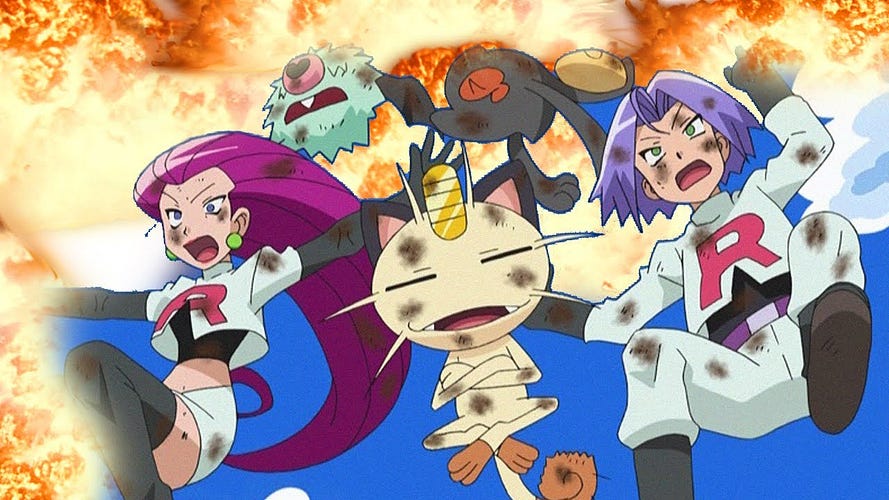The Evolution of Pokémon Villains
Feb 28, 2019 4:19:35 GMT
Post by CompleteWingback on Feb 28, 2019 4:19:35 GMT
This is an essay I wrote about two years ago for a blog I collab'd on. It was in my mother language, so I also translated it. This is my last-minute contribution to the Pokémon Day celebrations! 

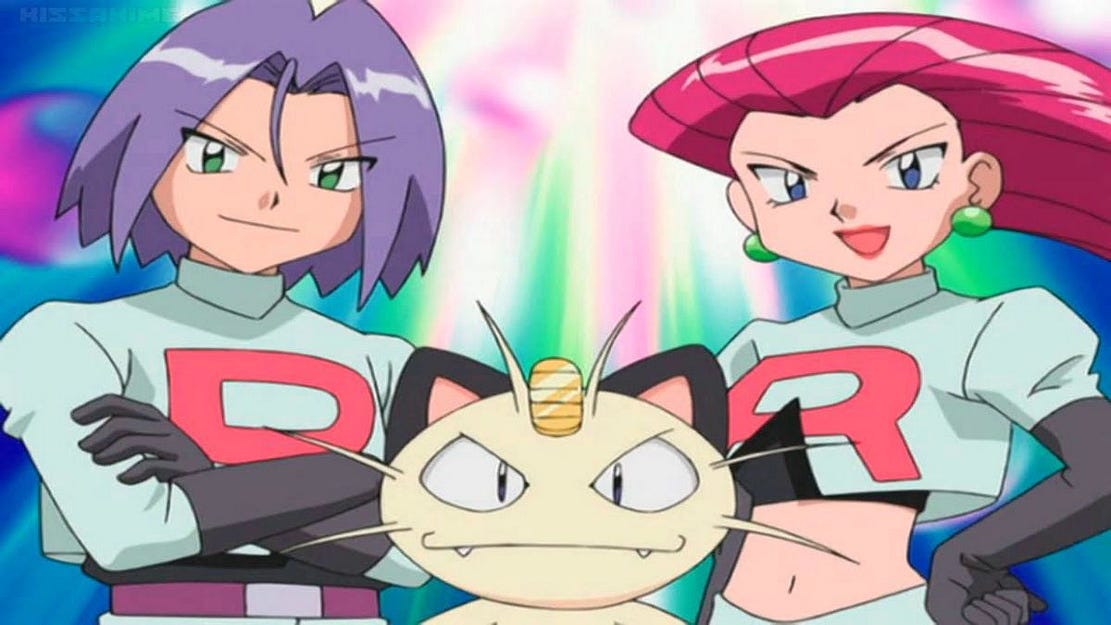
A 12-year old saves the world from a villain who commands a team with intentions to do something with, or related to, the Legendary Pokémon of their region. You've seen this movie - er, played this game, numerous times already. The core of the plot of a Pokémon game never changes, always holding on to that trademark, refreshing simplicity.
However, if you've played the games as much as you did, surely you've noticed that, as the games evolved, the villains' themes started to change? New motives, new personalities, new crimes... if we take a long, hard look at all the games, one after the other, it's clear that there's a big evolution not only on how these villains carry themselves, but also on the whole concept of "good", "evil" and "crime" through the eyes of the player. It's a significant growth, carrying with it social messages or a portrait of particular aspects of society.
Let's take this one step at a time, shall we?
Team Rocket (Red/Blue/Yellow; Fire Red/Leaf Green)
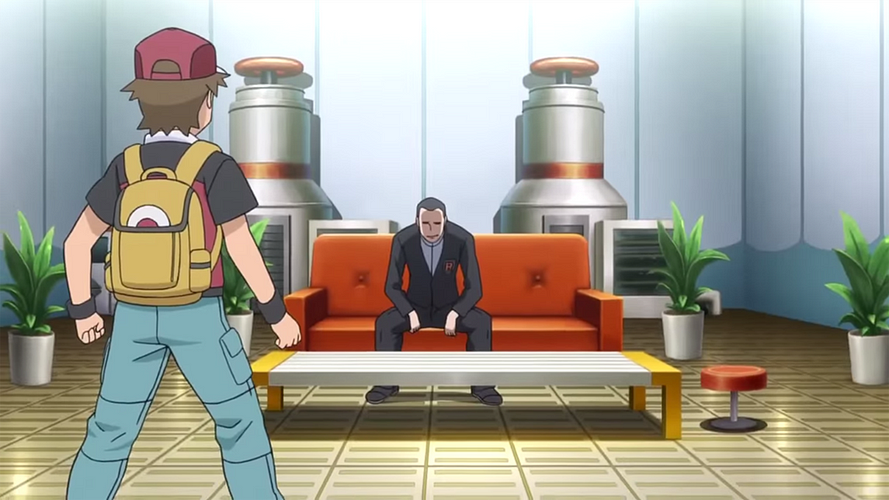
Prepare for trouble! The iconic Team Rocket, the first big bad team of the series, appears without too much explanation in the Gen 1 games. All we know is that they exist, they're there, and they're doing bad stuff. In a way, it's a very simple and borderline childlike vision of crime - they steal and treat Pokémon badly. Also "childlike" was the Pokémon franchise as a whole, which had just been born, and the Game Boy itself.
Usually, when drawing parallels between Team Rocket and real life organizations, the one which shows up the most is the mafia. This symbolism emanates mostly from Giovanni, the enigmatic and charismatic head of the family; certainly not from subordinates like Jessie and James. Giovanni is a suave sort of guy, composed, but with that dark and threatening tone in his words. He only drops the cool demeanor when you fight him, then the gloves are off. When Team Rocket storms Silph Co., a local company, Giovanni tells you he's in the middle of a "business transaction" with the president, which is totally Godfather lingo. As is with the mob, Giovanni is the patriarch, the head of the folk, and also the only one with a brain, while his troops are all a very limited sort; they tend to solve things with violence, doing all the heavy lifting and legwork for Giovanni. Kind of like mafia enforcers, in a way.
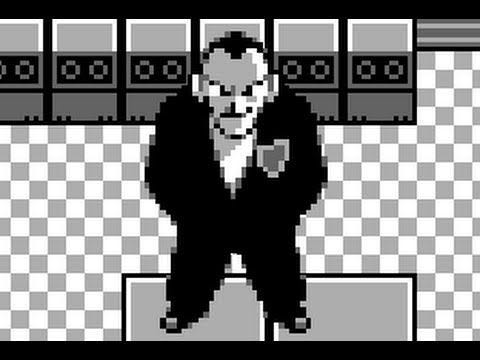
Another mafia aspect from Team Rocket stems from the plot; throughout the game, we realize Team Rocket isn't an operating outside of society. On the contrary, they run the Game Corner in Celadon (and, in exchange, are allowed to keep a hideout below it) and later, we also find out that Giovanni is actually Viridian City's Gym Leader. So, at the very least, they own a business and a share of political power. To finish the mob comparisons, Giovanni has that "honor of a criminal" theme going; after you defeat him in the Gym, you get not only the badge and TM, you also get his respect as a man and a boss. He knows to admit defeat, and swears to you, right there, that there will no longer exist a Team Rocket.
In the remakes, Fire Red and Leaf Green, we also get one last encounter with Team Rocket at Sevii Islands, more specifically on Isle Five, where a Rocket subdivision hasn't heard of Giovanni's decision and is still trying to steal rare gems while conducting questionable experiments on labs. Curiously, in their safehouse, there's a computer with data from a prototype device which forces Pokémon into evolving - foreshadowing the events of the Gen 2 games.
Team Rocket (Gold/Silver/Crystal; HeartGold/SoulSilver)
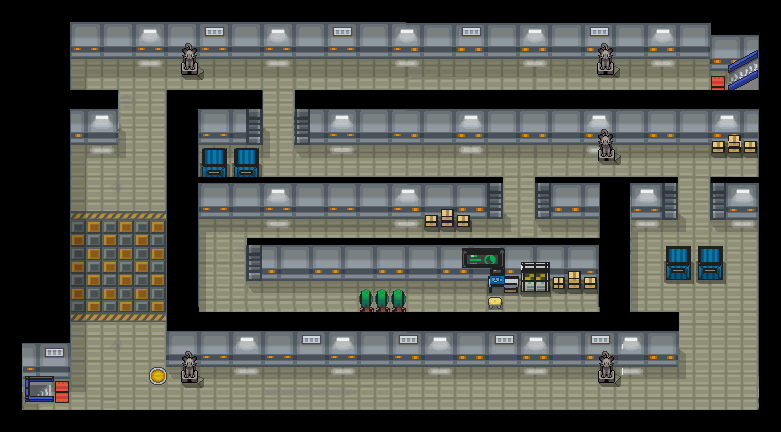
In the second act of the series, contrary to what's been done in almost every other game after this, the villain was repeated. Three years after the events of Red/Blue/Yellow/Fire Red/Leaf Green, Team Rocket, supposedly extinct, resurfaces cutting and selling Slowpoke tails in Azalea to sell on the black market.
In Gold/Silver/Crystal, it is my personal belief that the intent behind bringing Team Rocker back was "just because". During the Rockets' invasion of the Radio Tower, you learn that they were trying to get a hold of Giovanni through the media, and kept operating without him to show they didn't give up on his plans, but it's still very clear that a Team Rocket without Giovanni is much more disorganized. We're also introduced to a new class of Rockets, probably the ones running the show in Giovanni's absence: the Admins. They are brighter than the average grunt, but they're certainly no Giovanni, especially because during their "new ownership" Team Rocket lost all of its territory except for an underground hideout in Mahogany Town - which was already there, they just took it for themselves.
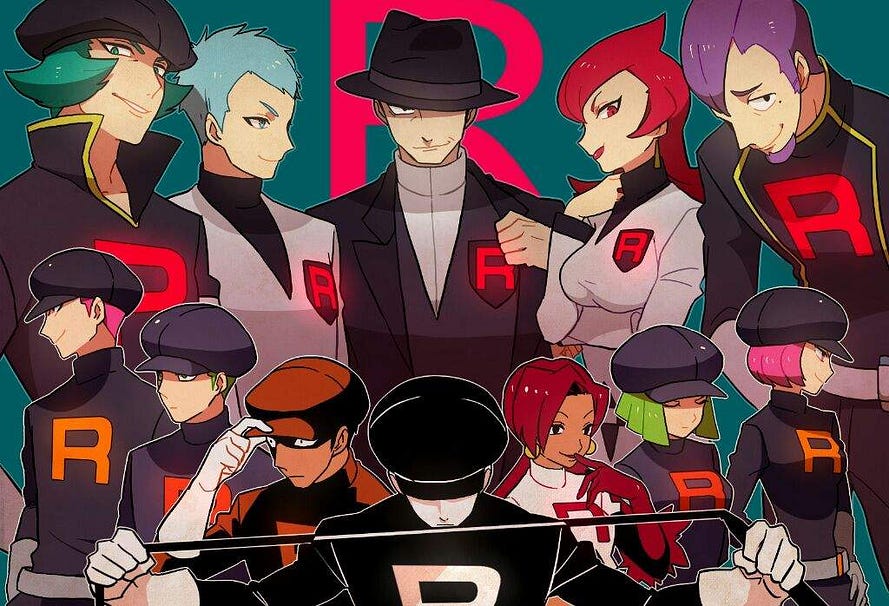
In Heart Gold and Soul Silver, the remakes, things get a little more substance. The Admins now have names, and they're four: Proton, a cruel and serious person; Petrel, the jester, a specialist in impressions; Ariana, the most elegant of the group and the one with the shortest fuse; and, last but not least, Archer, a man of few words (it's implied that he's the higher ranking Admin, sort of like a vice-president). The Rockets are much more open about missing Giovanni in this game, and even Archer himself, before the battle at Radio Tower, confesses that his plan is to bring his old boss back. Let's be honest, no one would bat an eye if he said he's actually doing it all for himself and didn't care about Giovanni.
The events of these games serve to "humanize" Team Rocket a bit, and show that villains can also miss a "father figure", or that it really was Giovanni the reason why Team Rocket made any success at all back in the day - because without him, it all went downhill. To end on this humanizing topic, the Celebi special event in Heart Gold/Soul Silver shows a bit of backstory related to Giovanni. First, you see him arguing with his son (Silver, the rival) three years back, and leaving; then, in present day, Giovanni is hiding in a hole in Tohjo Falls and listening to the radio when Team Rocket takes over the Radio Tower and calls for him to return. He entertains the thought of returning, but you show up and kick him to the curb. Very moving. 10/10.
Team Aqua/Magma (Ruby/Sapphire/Emerald; Omega Ruby, Alpha Sapphire)
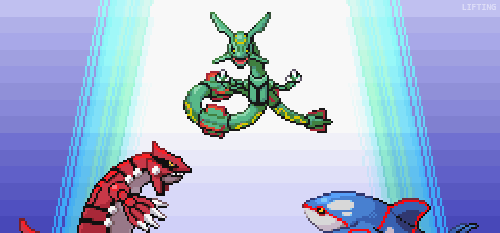
After two season of "mainstream" crimes such as stealing and kidnapping, Pokémon's third generation showed us two different teams with the same objective - Bioterrorism. Wow. Those who played Ruby and Sapphire had different experiences from those who played Emerald, because the two teams coexist in the game, but depending on the version (Ruby/Sapphire), one is the bad team and the other is just there to oppose them; while in Emerald, both teams are treated as villains.
Teams Aqua and Magma want, basically, to force changes into the Hoenn region's environment to satisfy their own agenda. Maxie, Team Magma's leader, wants to expand the land and create more conditions for humans and terrestrial Pokémon to survive, while Archie, Team Aqua's leader, plans on expanding the already vast oceans of Hoenn. Leaving the whole "these agendas are deplorable" thing aside, Maxie's plan at least makes sense, seeing as Hoenn is, in the sage words of IGN, "too much water". But Archie wants to expand something which is already overwhelmingly present. Go figure.
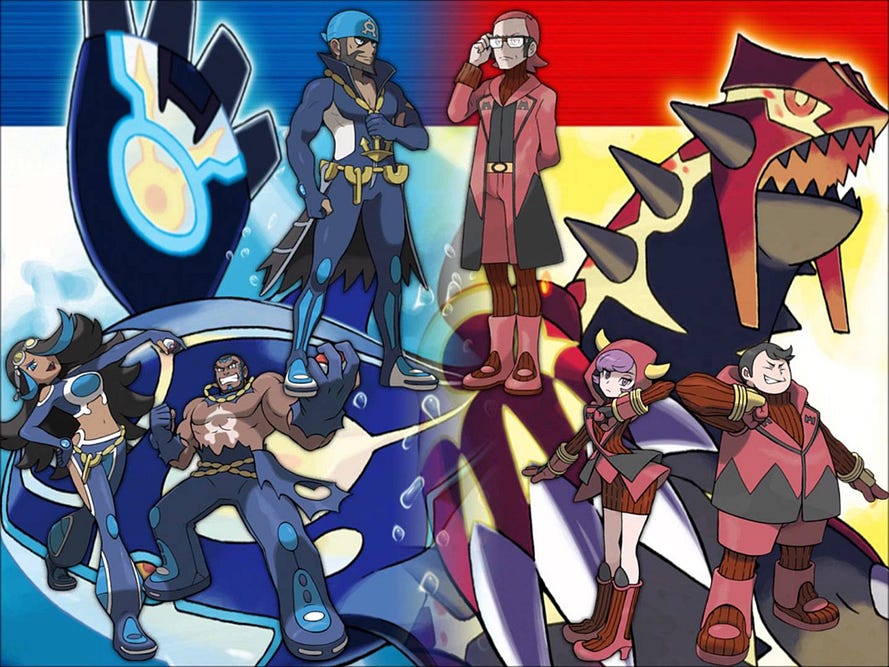
In Ruby and Sapphire, the bad leader wants to awaken and control the Legendary Pokémon who'll make their dream a reality - Groudon, the guardian of the land, in Ruby, and Kyogre, guardian of the seas, in Sapphire - and the opposing leader plans on stopping him, but still with their own agenda in mind. Bottom line, neither one is the good guy. On both games, what happens is the Legendary Pokémon not only awakens, but also doesn't accept being controlled and wreaks havoc in Hoenn, leaving you with the hot potato in your hands while both leaders finally realize that bioterrorism isn't cool. In Emerald, both teams try to one-up each other with their schemes, which results in a natural apocalypse that you stop by calling in Rayquaza, guardian of the air currents and authority over Groudon and Kyogre.
Much like Team Rocket, save for Archie and Maxie, the grunts and admins are an ignorant and brutish bunch, who sometimes can't even remember what exactly they're fighting for. The problem is that Maxie and Archie aren't Giovanni; on the contrary, both have much more temperamental personalities. In a way, during Gen 3, Pokémon ended up (intentionally or not) exposing the problem of two ideals arguing through extremism: a natural cataclysm. Write that down, everyone coming from Twitter.
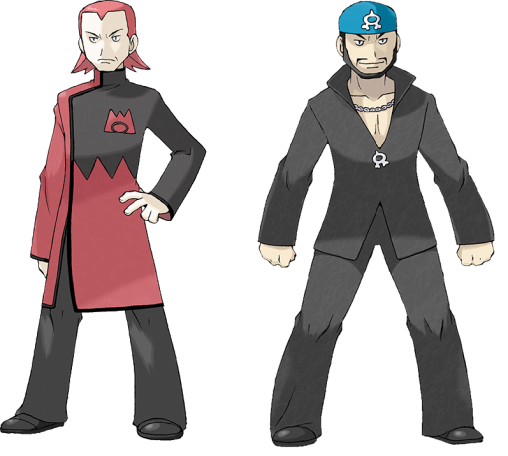
In the 3DS remakes, Omega Ruby and Alpha Sapphire, both leaders (and their admins) get a makeover in appearance and personality. Archie sports a urban-esque design, talks like a pirate, and is much more passionate and full of banter. Team Aqua also gets a new, more believable goal in mind for expanding the seas - to eliminate civilization, thought to be a mistake, and allow for people and Pokémon to start from scratch. Maxie, on the other hand, became a calm, composed and rather verbose intellectual, but with a short fuse (please do check out his "lost battle" animation, it's awesome). Team Magma is still intent on expanding the land for humans and Pokémon, now using development, housing and industry as their reasons. The war, with these changes, is a lot less stupid. (Also, funny how water resembles calm and fluidity, and magma resembles intensity and heat, but their leaders have opposing personalities to their elements).
Also in OR/AS we have the Delta Episode, a post-game segment involving a meteor in collision course with Earth, and your mission to blow it out of the air with Rayquaza's help. At this moment, Deoxys, the space virus Legendary Pokémon, comes out of said meteor and engages you in combat. In this case, I wouldn't call Deoxys a villain, per se. He's bad news for us, sure, but he isn't a conscious being (or at least has never been described as such) possessing logic and reason. There's no evidence that it wanted to actively mess with us. It's more like a pigeon or something, which brings diseases to us while being blissfully unaware of that.
Team Galactic (Diamond/Pearl/Platinum)

Not really one of my favorite teams, so to speak, but they do have the most interesting boss out of all of them. The Sinnoh region's own Team Galactic is an openly criminal organization which exists in a legal manner, allegedly performing scientific experiments in the name of progress. Their members are so stupid, they're like caricatures of previous villains - And I think Gen 4 went a bit too far with this. But their leader, Cyrus... there's a guy who's not dumb at all.
Cyrus is a sociopath, plain and simple. He carries himself the whole game as this really serious person, the kind who always has the same vacant look and cold stare, and is mysterious and threatening in his conversations with the protagonist. Always talking about human emotions and how they're mankind's biggest flaw, Cyrus is, also, a symbol of populist dictators and the means they use to reach their goals; when you, the player, invade Team Galactic's HQ, you stumble upon the end of a passionate speech forged by Cyrus, faking vibrant determination in his words while commanding his grunts to fulfill their goal of "conquering the world". However, as soon as you confront him in private, he wastes no time telling you he thinks his army is a bunch of fools, and that his real objective is to destroy the universe.
You heard me.
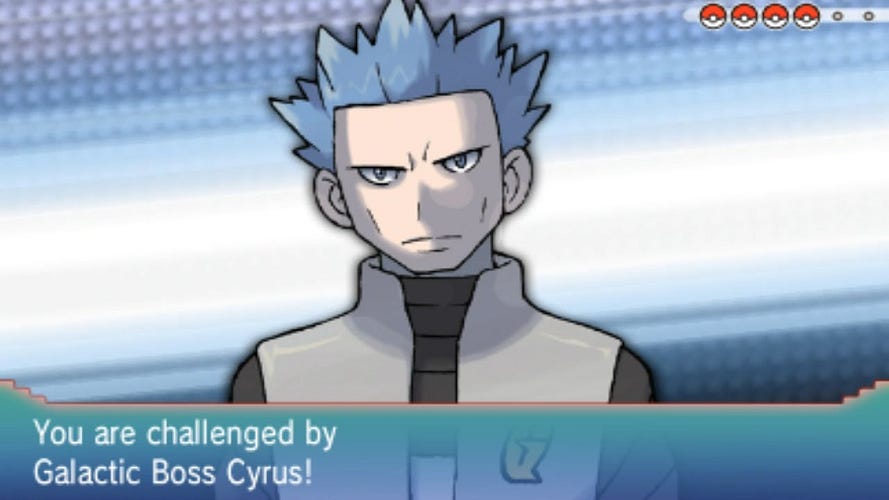
The guy DOES NOT give a damn.
Cyrus manages to forcefully capture Uxie, Azelf and Mesprit - the Legendary Pokémon symbolizing pretty much all the human traits he sees as "flaws" - and summons Dialga (time) and Palkia (space) to cleanse the whole universe and restart everything, with him as the mold. Obviously, things go south, and Cyrus ends up summoning pretty much PokéSatan (Giratina) to take him into the Distortion World, where all is bizarre and common sense is dead. He sticks around even after you beat him, but to be honest? I think he likes it in there. No humans, no emotions, nothing. Just him, and Giratina. Sounds cool.
After the dust settles down, more towards the endgame, a new bit of Cyrus' backstory is available: apparently, he's been drawn to machines in detriment of humans and Pokémon since he was a child, but what really made him into what he is was not corresponding to his parents' expectations. By his logic, his emotions made him weak and incapable, and therefore he swore to create a world with no emotions. Heavy stuff...
Team Plasma (Black/White)
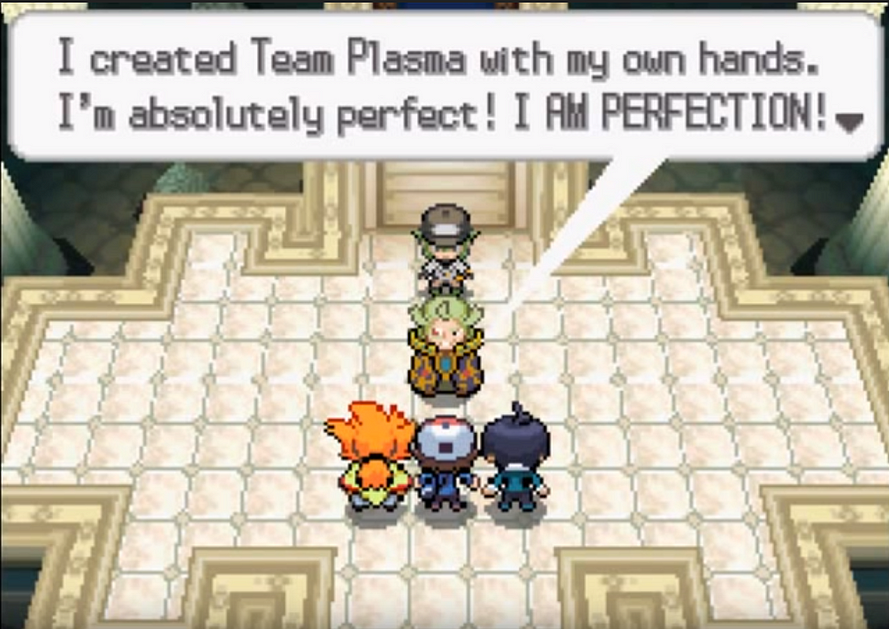
And now we reach one of the (if not THE) most interesting teams in the whole series. Team Plasma is an organization which shows up right at the beginning of the game, but they don't attack anyone, and they don't seem to pose a threat in any way. Their leader, Ghetsis, gives a public speech about Pokémon liberation, and about how us, as "superior" humans, never really question our relationship with Pokémon or the act of capturing them in the wild, taking them from their homeland, and forcing them to live with us and battle for us. Understandably, many people get awfully thoughtful and bothered. Team Plasma shows up in the Black/White games much more than any other team in their own games, but while some members don't really know what exactly they're fighting for, others know full well and are open about not giving a damn about anything but the money.
Everything about Team Plasma is different from the other games, and that's no coincidence; Team Plasma has documents on teams Rocket, Aqua/Magma and Galactic in which their many flaws are listed, such as not mingling with common people, drawing too much unwanted attention to themselves, having small ambitions and petty goals, etc. Team Plasma was carefully built on top of others' failures. Even their king, N, was a fabrication - a socially awkward human who was adopted (and manipulated) by Ghetsis who can hear Pokémon's hearts. At the final moments of the game, you find out that Ghetsis wanted, from the very start, to conquer the world to himself and become its lone dictator; no N, no Legendary Pokémon, nada. The whole "liberation" speech was a ruse, a way to guarantee that no one would have any Pokémon in tow to oppose him after his plan was revealed.
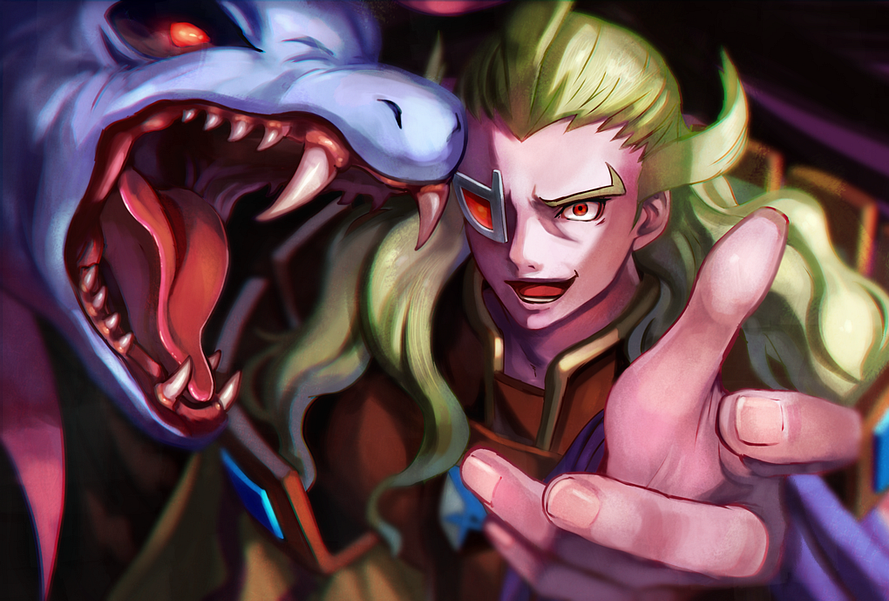
Many call this revelation bland, since Team Plasma had such a fresh and never-seen-before stance of getting into people's minds with ideas of Pokémon liberation, only to reach the twist in which Ghetsis reveals himself to be another Giovanni - a villain with much simpler ambitions and methods. The main difference between these gentlemen is that Giovanni wanted the world, yes, but to him and his fellow Rockets to thrive on. Ghetsis, on the other hand, wanted it all for him, Plasma be damned. One is more of a corrupt president, while the other is straight up an absolutist dictator. And while we're at it, Giovanni accepts defeat and dissolves Team Rocket when he's beat; Ghetsis, on the other hand, loses control of himself, threatens to kill the protagonist, curses his own son and is taken off the castle screaming the cliché "I CAN'T LOSE, I'M PERFECT!!!!".
Pokémon Black/White's core theme is the battle between the hero of truth vs. the hero of ideals (N and you are depicted as being one or the other, depending on the version), and N's distorted idea that only one of those heroes could exist. But the truth, or at least the truth that the game reaches, is that the world we live in is a product of the numerous clashes between truths and ideals. This shows, looking back, how the notions of "crime" and "good vs. evil" changed gradually in Game Freak's eyes; we went from mobsters stealing Pokémon for profit, to a philosophical discussion about the nature of the world and the relationship between humans and Pokémon. Heck, there's even a moment on N's castle where a Plasma member doesn't like the idea of releasing his stolen Pokémon, since he got attached to it. Truly gets you thinking in a conceptual level.
Team Plasma (Black 2/White 2)
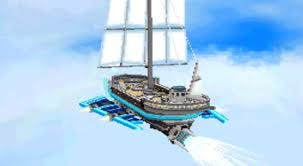
In the sequels to Black/White, the plot is somewhat simplified, which angered some people that liked the original Team Plasma. Here, the conglomerate split itself into two: the "good half", led by a redeemed N, who seeks to pay for their crimes by working for the betterment of society, and the "bad half", with a new black uniform, who remained aligned with Ghetsis and is led by a scientist named Colress. What angered people was the fact that, after spending a whole game challenging and redefining the notions of good and evil, we're back to "cops and robbers" again. Particularly, it's not that bad: even if they're seeking redemption, "Good Plasma" guys are still openly criticized and the jury's still out for most of the people around them, including Hugh (the rival), who screams at them at one point. Rood, one of the former Plasma's Seven Sages, says he's well aware that they're not likely to be forgiven, but that they still must repent and work towards the good that N envisions.
"Bad Plasma", on the other hand, is even more dangerous and extreme, going as far as stealing Legendary Pokémon Kyurem and his powers to freeze - freeze! - the Unova region entirely. Colress reveals too soon that he's Bad Plasma's leader, but upon discovering Kyurem, you also find out that Ghetsis is alive and is the real mastermind behind it all. Visibly unhinged, he no longer cares about using rhetoric and trickery to dominate the world, choosing instead to do it by force.
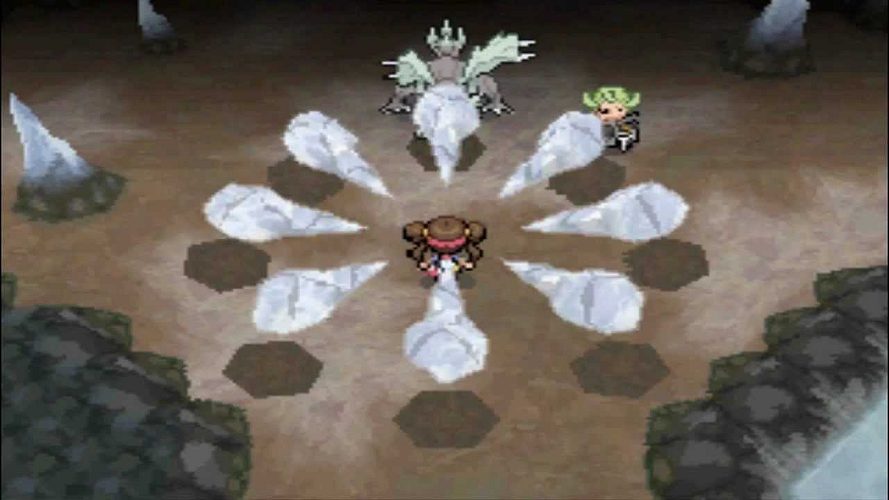
Once again, Ghetsis tries to kill you. He (and one more) are the only Pokémon villains to take a defeat so personally, and even when N shows up and tries to get him to surrender and repent, Ghetsis apparently finally snaps. The things he yells during his meltdown no longer make sense, and his loyal servants take him away, swearing never to show themselves to society again.
The attentions are all focused on Colress, who I find weak as a character, but represents a new type of "villain". He is a truly neutral scientist, one who chooses not to see "good" and "evil". His life goal is to find out how to draw the most out of a Pokémon's potential, and he joins Team Plasma with this agenda of his own in mind. When you defeat him, he realizes that the key to his research is in the bond between a Trainer and their Pokémon, and he quickly switches sides, telling you where Ghetsis is and giving you tips like nothing's happened.
Team Flare (X/Y)
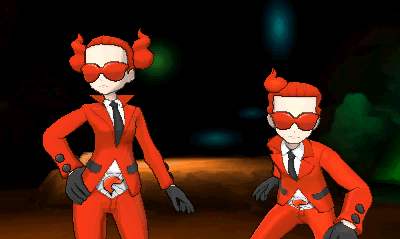
... And that's where Game Freak dropped the ball. I won't lie, Team Flare is my least favorite team - actually, it's the only one I straight up don't like - and many would agree with me. Team Flare barely shows up on the game, their motives are badly explained, and their members have shallow, one-dimensional personalities; not that Team Rocket and Aqua Grunts are super deep and complex characters, but Team Flare's main thing is "we're cool and you're not". The entire reason for these guys' plans is getting rich, but then also cleansing the world from humans to claim all resources to them. Bleh. Pathetic.
Their leader, Lysandre, has a very inconsistent personality. Throughout the game, even when he's still being portrayed as a "good guy", he drills into your head constantly that the world is ugly and dirty because humans are inferior (settle down, Cyrus), and he recruits people for his mission of "creating a beautiful world". At some point, he reveals himself to be Team Flare's head honcho, and he wants to destroy the world (Cyrus, I said settle down!!) with a lethal subterranean weapon which runs on the box Legendary Pokémon's power.
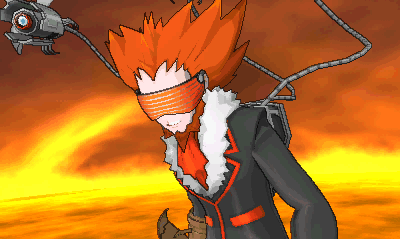
He doesn't even have the dignity that most other villains have! He tells you 300 times that, if you beat him, he won't activate the weapon; you win all 300 and he still blasts the damn thing. Depending on the version you pick, he either makes you immortal against your will (X) to live in this "dirty and ugly world" forever, which sucks so bad as an evil plan, or tries to kill you and your friends (Y). Either way, the weapon backfires, solely the place where it's being kept collapses, and Lysandre dies in the process.
Even his death is dumb. He's the only villain so far to accomplish dying on a Pokémon game.
If we had a better fleshed out story, maybe all of my criticism would be rendered null and void; but the fact is that Team Flare has little screentime, a rushed backstory, and, contrary to Team Rocket, they don't work with their limitations and have an equally simple and self-explaining goal - which results in the mess that was Gen 6, at least until ORAS swooped in to save it. I believe that what happened here was Game Freak working their way up with villains along the games, with ever-growing stakes, and they went so high they hit a wall and though "now what?". The result of their dilemma was Team Flare.
Team Skull/Aether Foundation (Sun/Moon)
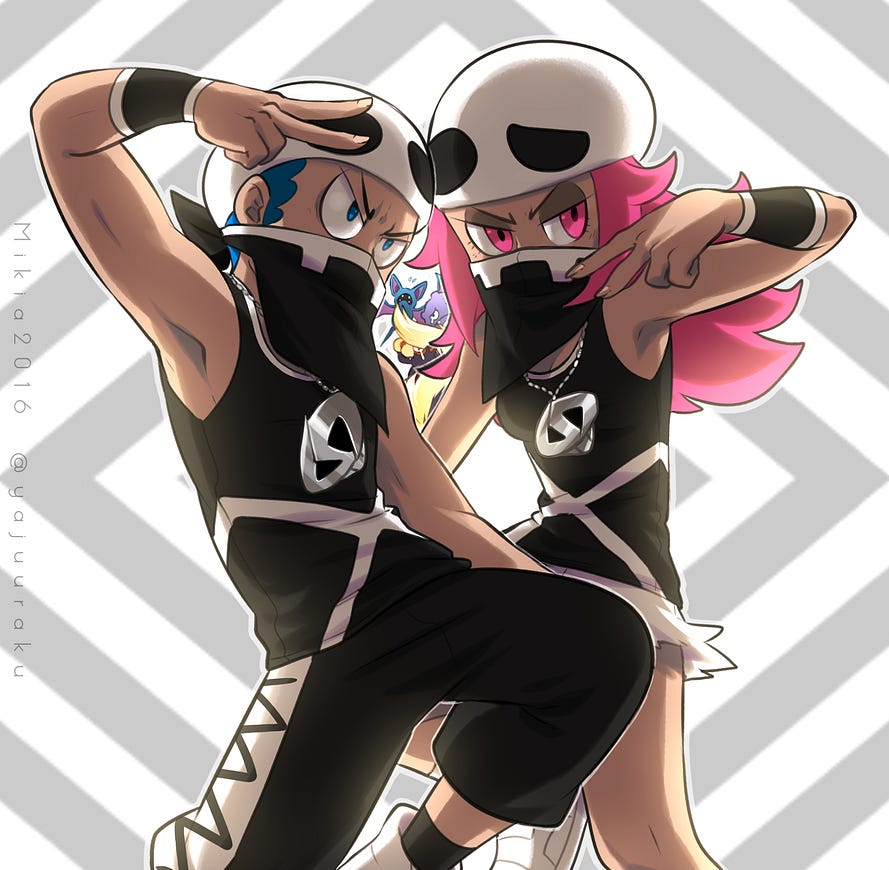
After writing themselves into a corner with Team Flare, Game Freak decided to go back to basics and do something simple in Sun/Moon - or at least it seemed so, until the end. Team Skull is, to this day, the only group of villains to inspire fear in absolutely no one (even Galactic had a few shaking in their boots); they're a bunch of rejects who go around throwing rap signs, speaking nonsense and trying (keyword) to steal other people's Pokémon. Even their "admin" Plumeria and their big boss, Guzma, who don't share their subordinates' stupidity and incompetence, are characters who're more bark than bite.
Team Skull is so pathetic, you can't help but feel for them, want to take them home in a bottle, etc. This is taken to a whole 'nother level when you reach Po Town, Team Skull's "ghost town", and you realize their lives actually really, really suck. The members, including Guzma, are former Trainers who couldn't finish their Island Challenge runs and ran out of options for the future, while also having to deal with feelings of failure and disappointment - in Pokémon terms, not making it as a Trainer is akin to being unemployed and a college dropout. It's not obvious at first glance, but Po Town looks a lot like a crack house, a messed-up, vandalized town whose inhabitants are people who didn't really want to be there, but found in "gang life" an escape from the harshness of the real world. Nanu, Po Town's kahuna and chief police officer, is questioned often about having a precinct next to Po Town and doing nothing to stop Team Skull, but he actually is privy to their lives, committing himself to only intervene if they go too far. In Nanu's eyes, the world's given them enough punishment as is.
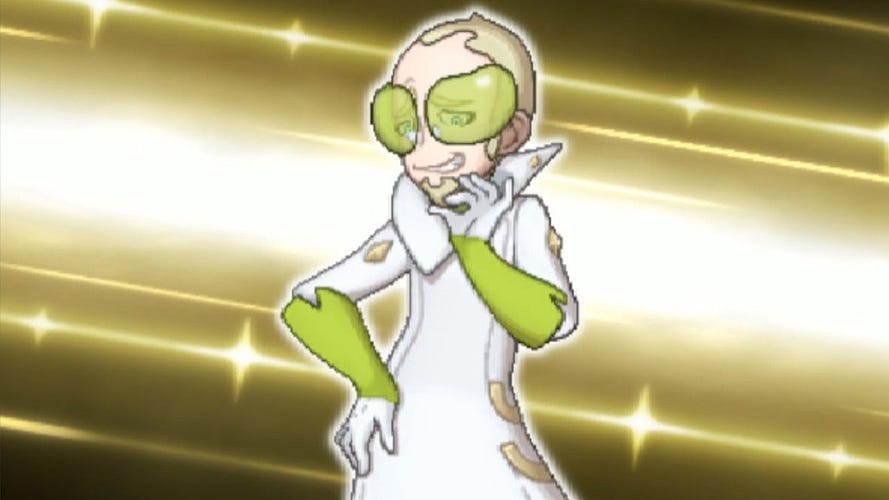
Well, anyway, this is still Pokémon and we need a proper villain. Enter Aether Foundation! The organization whose focus is on preserving Pokémon life, conducting environment-friendly experiments and is led by "loving mother" Lusamine appears as a pretty chill and nice place, which is tasked with researching and understanding "alien" Pokémon called Ultra Beasts. All cool so far. That is, until Lillie, your friend, is taken by Team Skull Admin Plumeria and brought to... Aether Foundation!
At this moment, you discover that not all is well at Aether: they take advantage of Team Skull and keeps them around, gives them a little boost here and there, and everyone gets too distracted by them to realize Aether's the one doing horrible stuff behind the curtain; such as overly obssessive research on the Ultra Beasts, special-made Poké Balls to catch them, documents on alternate dimensions and how to travel between them, and, more importantly, they made a f---ing chimera called Type:Null by joining parts of various Pokémon together to battle said Ultra Beasts. They couldn't control the beast, however, so they deemed it a failure and tossed it away until a brave edgy boy saved it.
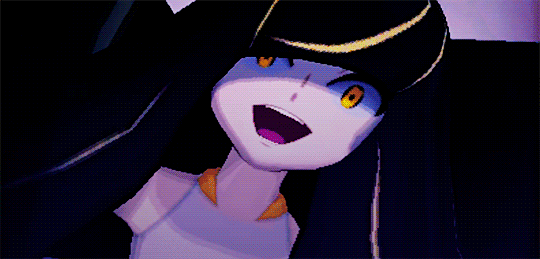
The worst of it all is "cute momma" Lusamine: she keeps Pokémon frozen in a secret room, and is so obssessed with beauty and order that she intends to steal the Ultra Beasts for herself, all the while humilliating her children for not obeying her every command. Not surprisingly, this game's final boss is Lusamine tripping on acid - whoa whoa whoa, I meant on Ultra Beast Nihilego's acid, which possesses her and renders her completely insane. Fortunately, in contrast to the other games which either gave the Big Bad a neutral or a bad ending, this time Lusamine is rescued in time from Nihilego, and her children go with her to Kanto so that she can receive treatment. This is a little too good an ending for her, she still did horrible things, but at least equally corrupt VP Faba gets his just desserts.
As for Team Skull, later on, Plumeria tells you about Guzma and Team Skull, expanding even more on the walking inferiority complex they are. According to her, Lusamine was the only person to ever recognize Guzma's talent as a Trainer, which made him swear allegiance to her. Plumeria vows that Team Skull and her will find something to give them purpose in life, and Guzma is seen on Hau'oli Beach, where his former teacher Hala talks with him about training again.
The main real-life comparison between Aether and Team Skull's relationship is to drug trafficking and the big corporate figures who have a hand in it, financing illegal activities in the shadows. Team Skull plays the role of the small time criminals that get jailed and distract the people, while Aether, operating as some sort of corporate mafia, government or anything that fits, continues their questionable activities.
Team Skull/Aether Foundation (Ultra Sun/Ultra Moon)
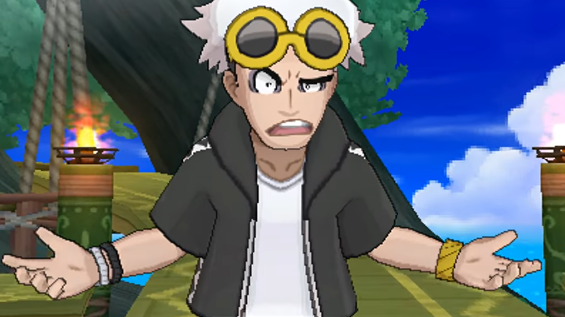
In Ultra Sun/Moon, the enhanced versions of Gen 7, the plot progresses mostly unchanged until the end. Instead of wanting the UBs for herself and becoming a crazy alien, Lusamine actually becomes a misguided wannabe hero. She still has bad moments, and she still has the ice chamber, the horrible parenting (a bit watered down from Sun/Moon), etcetera... but what she really wants is to defeat Necrozma, the game's absolute Legendary Pokémon, believing it to have taken her husband, a former researcher at Aether.
Fun fact: her husband has been back for ages, doesn't remember squat, and is the farmer-like person who shows you Poké Pelago. There's even a heartbreaking scene between them in the ending sequence. Sniff.
But anyway: humanizing Lusamine ended up backfiring a bit by making her inconsistent. Aether Foundation is still corrupt, Team Skull is still on their payroll, nothing's changed, but the great Big Bad in the end is... no one. Even Necrozma itself had its reasons to unleash chaos and destruction in Alola. It's like Ultra Sun/Moon tried to tell us "no one is 100% good or bad", or something, but it's a bit confusing. What I did see them do was throw most of Lusamine's big nefarious plans from the first game onto VP Faba's back, turning Lusamina from "villain" into "a bit of a nuisance".
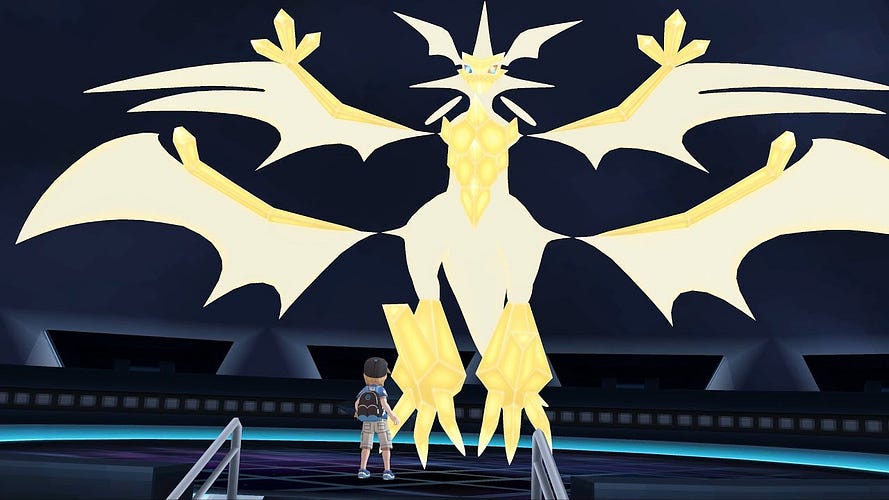
To my delight, Team Skull's happy ending is amplified even more in this version. Guzma dissolves Team Skull as they were, and decides that from now on, their objective is to find a way to stick together, but to find the success that they deserve. They don't become trainers, or cops, or heroes... they just want to find their place in the world, keeping it true to themselves, without needing others' help or recognition. This is very beautiful, and it's a good note to end the Pokémon saga on portable games - a message of redemption and...
Team Rainbow Rocket (Ultra Sun/Moon)
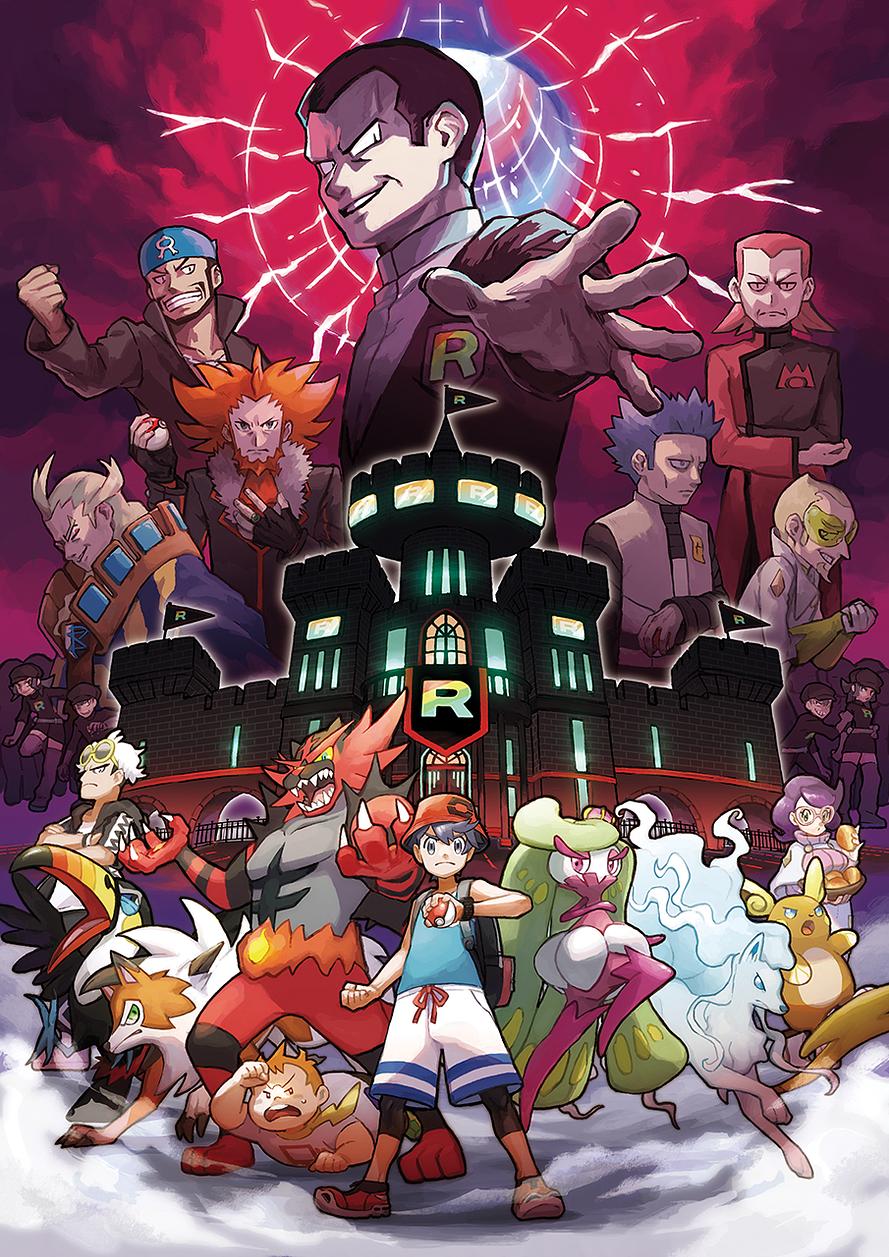
... Oh, boy.
Team Rainbow Rocket is pretty much the Cliff's Notes of Pokémon villains. Since Ultra Sun/Moon are the last games of the franchise on portable games, Game Freak thought it nice to include a postgame sendoff in which every villain in Pokémon history comes together to conquer the world. Cliché, but very well done.
Since USUM is all about parallel universes and interdimensional traveling, Team Rainbow Rocket is the result of that knowledge falling into the wrong hands. Giovanni, the man himself, but from another timeline in which he won, discovers interdimensional traveling and decides to use it to his advantage. He then assembles the scourges of the past, but taking them only from timelines in which they won their battles, and thus, Team Rainbow Rocket is born.
Here we have an interesting look in already visited villains, and it's also a good way to finish this essay, kind of like a review segment. Cool, huh?
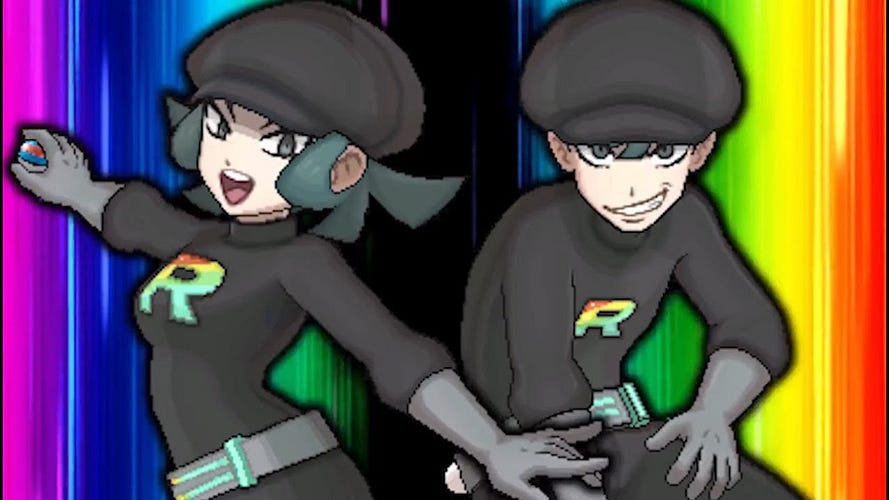
First of all, Team Rainbow Rocket is a big ol' nostalgia fest. The grunts are as stupid as ever, and as funny as ever too. Also, here, Guzma reaches true redemption; at one point, he barges into RR's castle and helps you in a double battle, and then grabs two grunts by the face with his hands. 10/10 moment, truly. What a stud. sigh
Going by the "correct" order, first up is Maxie. This Maxie isn't his Omega Ruby self, but rather, his Ruby/Emerald self. As is in his own game, he questions himself and his goals after being beaten, asking himself whether he truly was doing the right thing. Archie, also in his much more serious and polished Sapphire/Emerald personality, does the same. Both of them have their targeted Legendary Pokémon on their teams, showing that they did accomplish what they wanted in their timeline, but then they say they were brought here by a "mysterious force". What made them work for Giovanni was the hope that one of them realizes their visions in our world - they don't care about following orders as long as they get their wish - and that the other doesn't.

After them, Cyrus appears. Many would ask themselves what would a misanthropic sociopath like Cyrus be doing working for Giovanni. The first question Cyrus asks you is if you're in the "new world" - the world Cyrus intended to create, free of emotions. This means that, unlike Archie and Maxie, Cyrus had just arrived on Team Rainbow Rocket and had no idea where he was. Cyrus has an interesting segment in which he talks with your RotomDex and, upon defeat, promises to Rotom that he won't do a thing to our world. This is new in Cyrus, compassion for Pokémon despite still hating humans. A true nihilist, Cyrus just straight up gives you a key to escape his room and decides to leave to his perfect world. Don't ask me how.
Moving on, it's time for... sigh... Lysandre. For some reason, his genius plan didn't kill him; on the contrary, he was taken to RR Castle by Giovanni before he could blast the weapon. Both Lysandre and Cyrus, unlike the Hoenn enemies, seem to be touched by the strong bond between you and your Pokémon, but justify their actions on being "too far" into their plans to stop now. Determined to change this world, as well, into a beautiful world, he challenges you... and loses, as expected. Just like in XY, he forces you to choose between two buttons: one activates the weapon, brought to the castle along with him, and the other helps you venture further into the castle. I'm so done with this guy, seriously...
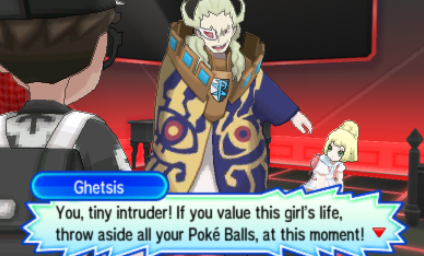
So far, save for Cyrus, none of the villains acts too different from what we expected. Then, another one who (thankfully) didn't change at all shows up - Ghetsis, who confesses surprisingly quickly to what should be obvious to us: he only accepted to be under Giovanni so that he could act as a "shadow ruler", while Giovanni unwittingly plays a fake king... just like N. Upon defeat, Ghetsis takes Lillie hostage and literally threatens to kill her if we don't let him go, the son of a-- anyway, Colress, who is a part of the regular game in Gen 7 as well, shows up with a device to send Ghetsis to another dimension. Ghetsis asks the scientist why the betrayal, but Colress only tells Ghetsis he hates him. Great moments.
With all the past memories laid to rest, it's time to face Giovanni, the OG, the mold, the father of all villains. Much like the Giovanni we're used to, this version of him didn't change even in victory: he's cool, talks nice, still has that dark tone on his words, but treats you in a civil manner. I mean, I'd also be as happy as a pig in the mud if I had a Mewtwo answering to my every command. Even after being defeated, he's all laughs, slaps you in the back, says "good one, son! You did great!" and goes away telling you he won't show up again. I know that Giovanni is a... nice... guy (I feel bad describing a mafia boss like this), but even he wouldn't be so graceful in defeat.
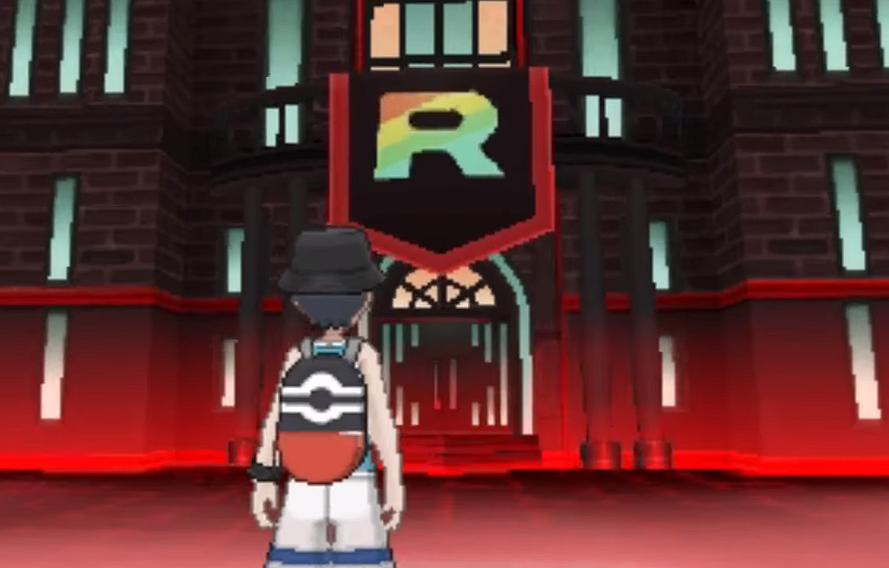
Of course, in the end, we're treated to a quick shot of him hiding, thinking to himself as he teleports to another dimension, "where am I going to lay my evil schemes on next...?"
Life is literally a game to him now. That is so freaking cool.
Conclusion
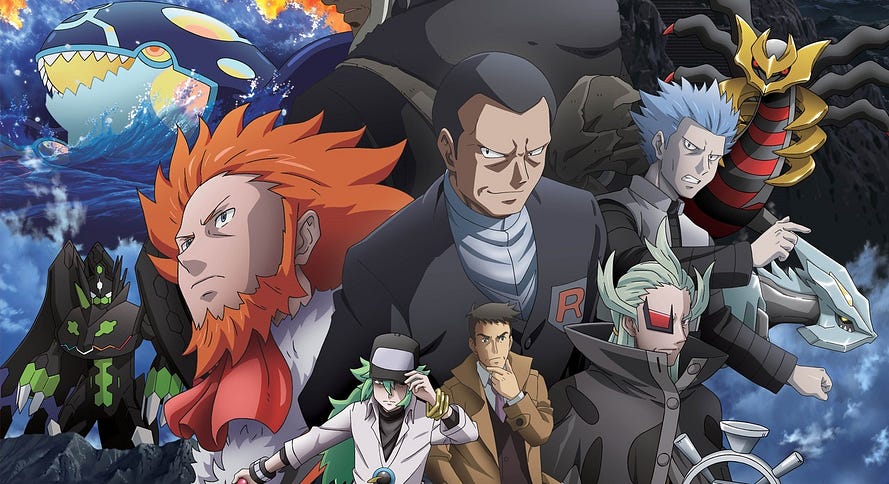
It's been widely spread for years that playing Pokémon for the plot is stupid. It's true that the games never really focused too much on complex stories, favoring relatively simple, colorful and even infantile narratives instead. The first games barely even told a story at all, leaving the players to think for themselves. But the true stupidity, for me, is to deny the value of the plot in these games - especially when there's, to this day, a plethora of videos and articles detailing theories, alternate universes, and mysteries of the whole franchise. This whole essay on the antagonists and their evolution, for me, is just a sample of what can be gleamed from Pokémon's very rich lore.
And now, we move on to the Switch, with new worlds, villains, heroes, and whatever fits this big rainbow of personalities.
